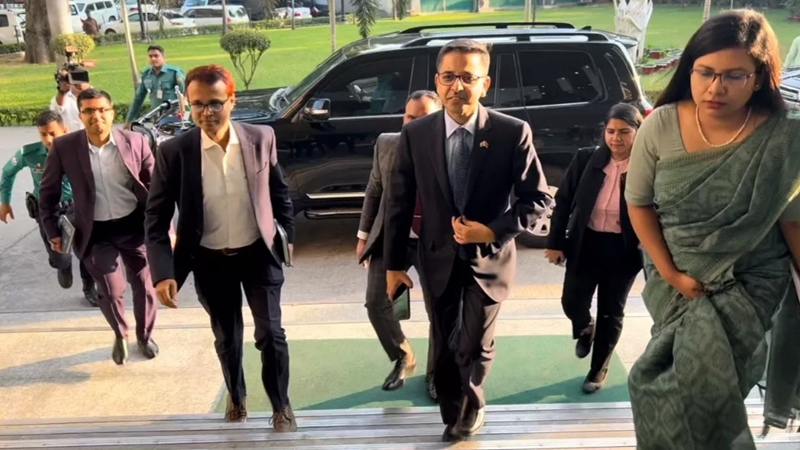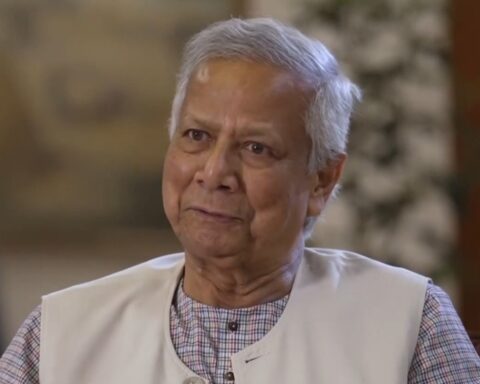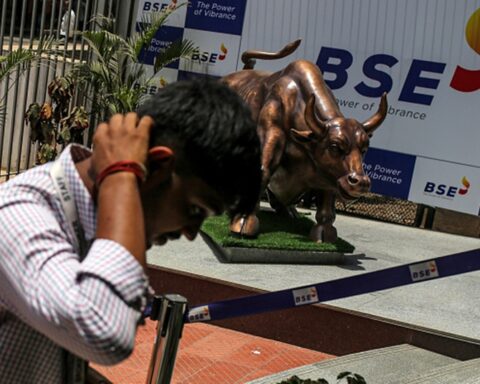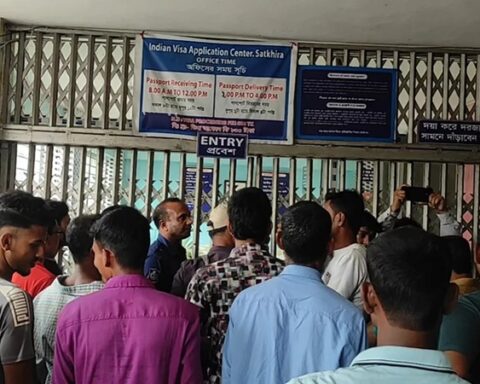Dhaka, Jan 12 (PTI) Bangladesh Foreign Ministry on Sunday summoned Indian High Commissioner Pranay Verma over border tensions.
The development came hours after Dhaka alleged that India was trying to construct fences at five locations along the Indo-Bangla border, violating a bilateral agreement.
Verma entered the foreign ministry around 3:00 pm (local time). His meeting with Foreign Secretary Jashim Uddin lasted about 45 minutes, the state-run BSS news agency reported.
While no official statement was released by the interim government regarding the discussions, officials confirmed that the envoy was summoned.
Talking to the media after emerging from the meeting, Verma said Dhaka and New Delhi “have understandings with regard to fencing the border for security”.
“Our two border guard enforcements – BSF and BGB (Border Security Force and Border Guard Bangladesh) – have been in communication in this regard. We expect that this understanding will be implemented and there will be a cooperative approach to combating crimes along the border,” Verma added.
Earlier in the day, Home Affairs Adviser Lt Gen (retd.) Jahangir Alam Chowdhury said that India halted construction of barbed wire fencing along the border due to the strong opposition from the Border Guard Bangladesh and locals.
Addressing a media briefing, Chowdhury said that due to some unequal agreements signed during the previous government’s tenure, “several issues have arisen along the Bangladesh-India border”.
“However, the efforts of our people and the BGB have forced India to stop certain activities, including the construction of barbed wire fences.”
Chowdhury said Bangladesh and India have four memorandums of understanding (MoUs) to govern border activities.
“Of these, the 1975 MoU specifies that no development with defence potential can take place within 150 yards of the zero line. Another MoU states that no development activities can occur within this boundary without mutual consent. Any such work requires prior agreement between the two nations,” he said.
The adviser said India has already fenced 3,271 kilometres of the 4,156-kilometer-long border with Bangladesh, leaving approximately 885 kilometres unfenced.
He accused the previous government led by deposed prime minister Sheikh Hasina of granting India unequal opportunities, which led to disputes over barbed wire fencing at 160 locations between 2010 and 2023.
“Recently, conflicts have surfaced in five areas, including (northwestern) Chapainawabganj, Naogaon, Lalmonirhat, and the Tin Bigha Corridor. Thanks to the strong position of the BGB and locals, India has been forced to halt its activities,” he added.
He said that under the 1974 agreement, Bangladesh handed over Berubari to India after parliamentary ratification. In return, India was supposed to provide Bangladesh access to the Tin Bigha Corridor, but it failed to fulfil this commitment or ratify the agreement in its parliament, he added.
“They used to open the corridor for an hour and then close it for another hour. Finally, in 2010, an agreement was reached to keep the corridor open 24 hours. However, this agreement also allowed India to construct a border fence on the zero line at Angarpota, violating the 150-yard rule,” he said.
“Now, while we oppose this construction, we face challenges as Bangladesh is a signatory to the 2010 agreement,” he said, adding that the foreign ministry took up the matter for diplomatic engagement.





